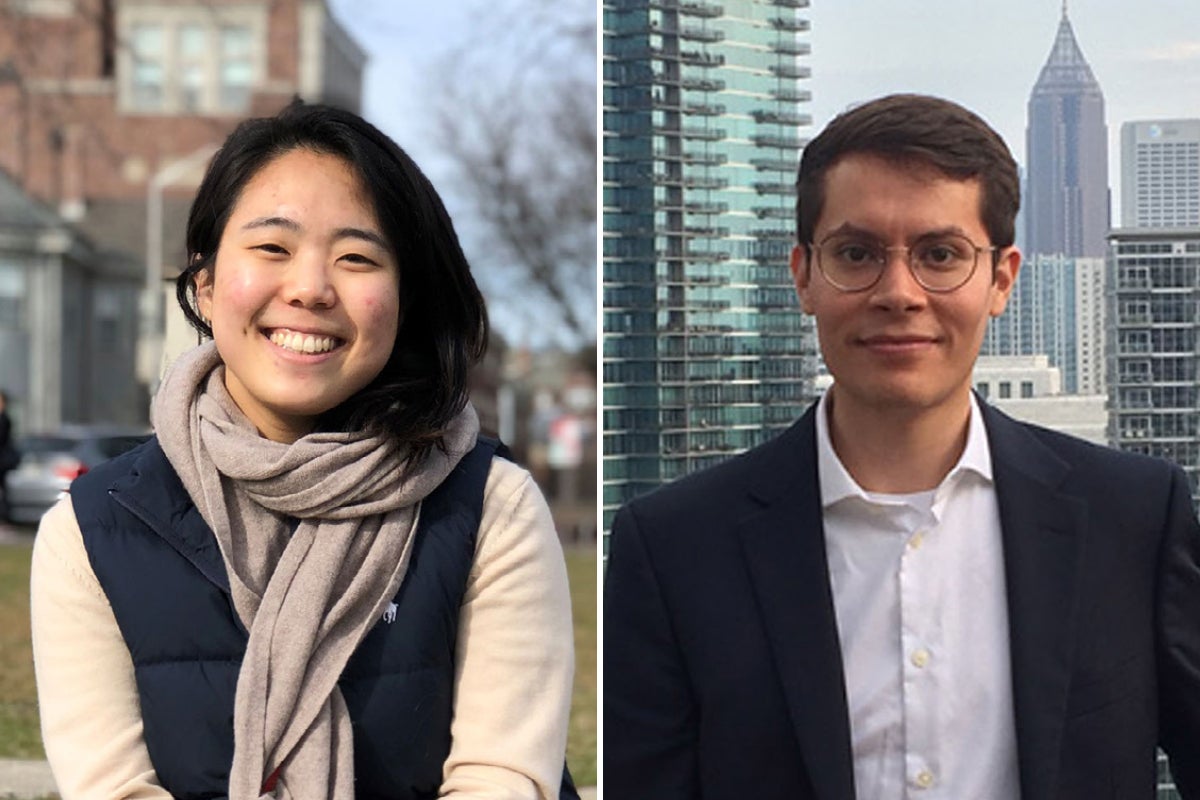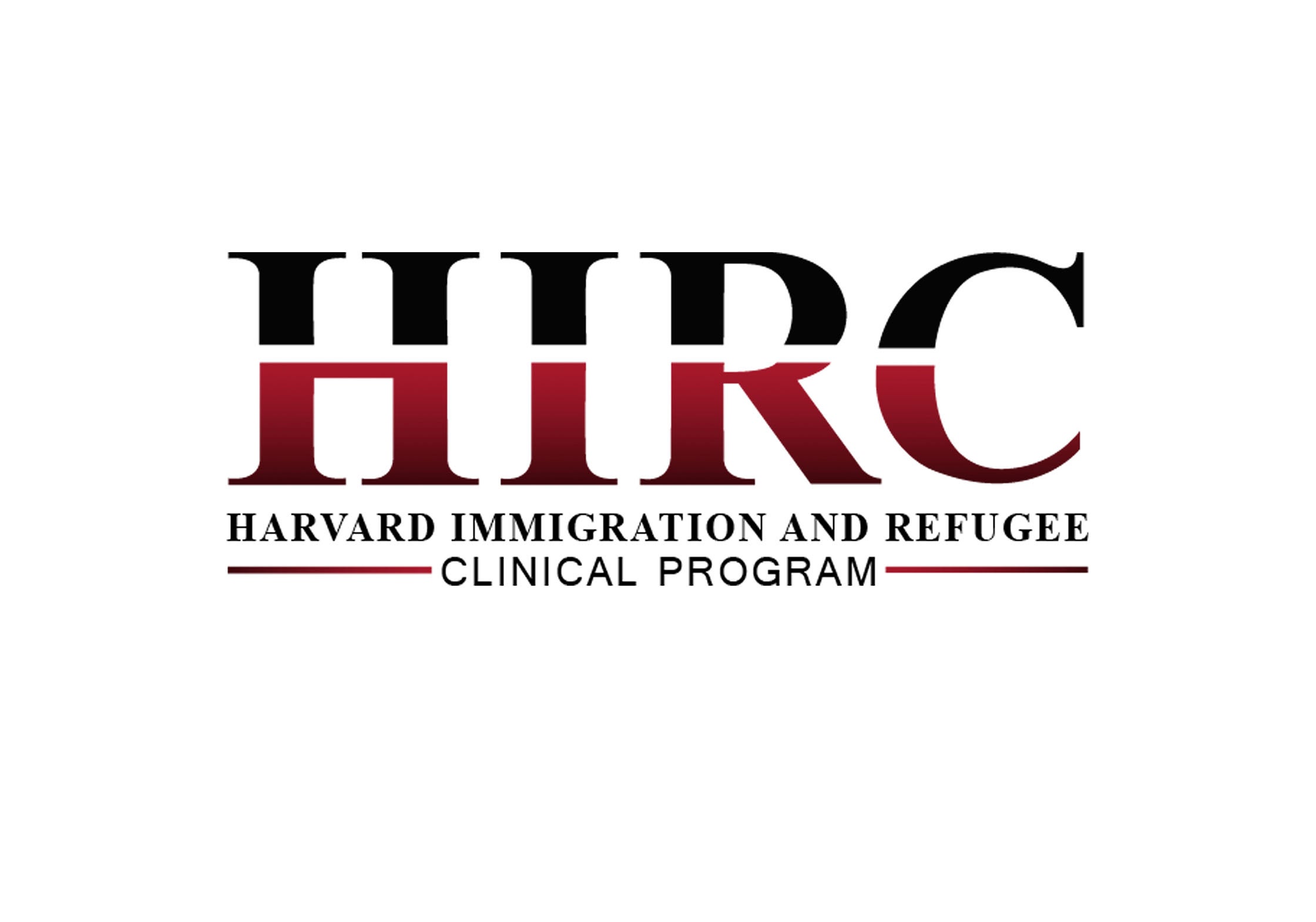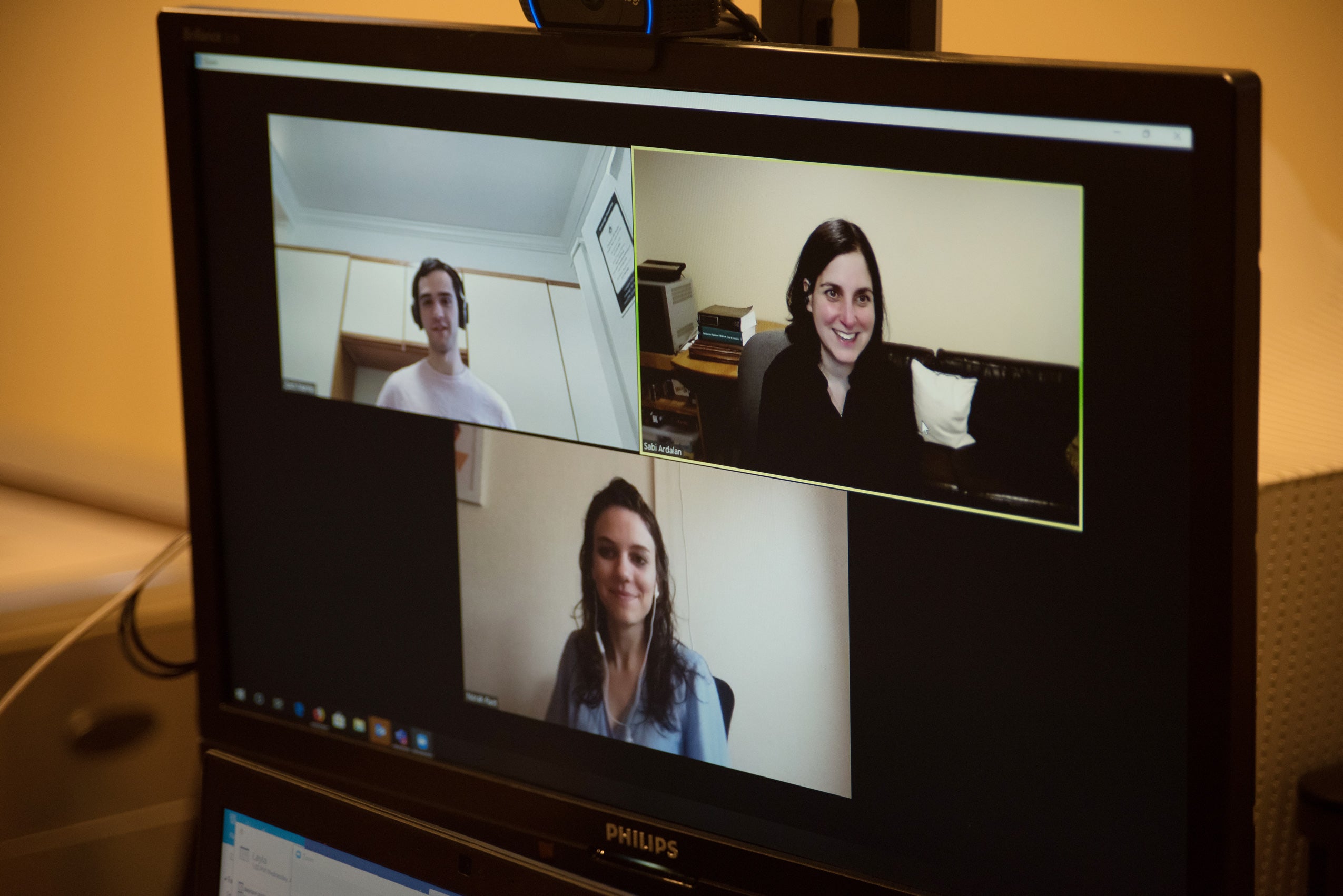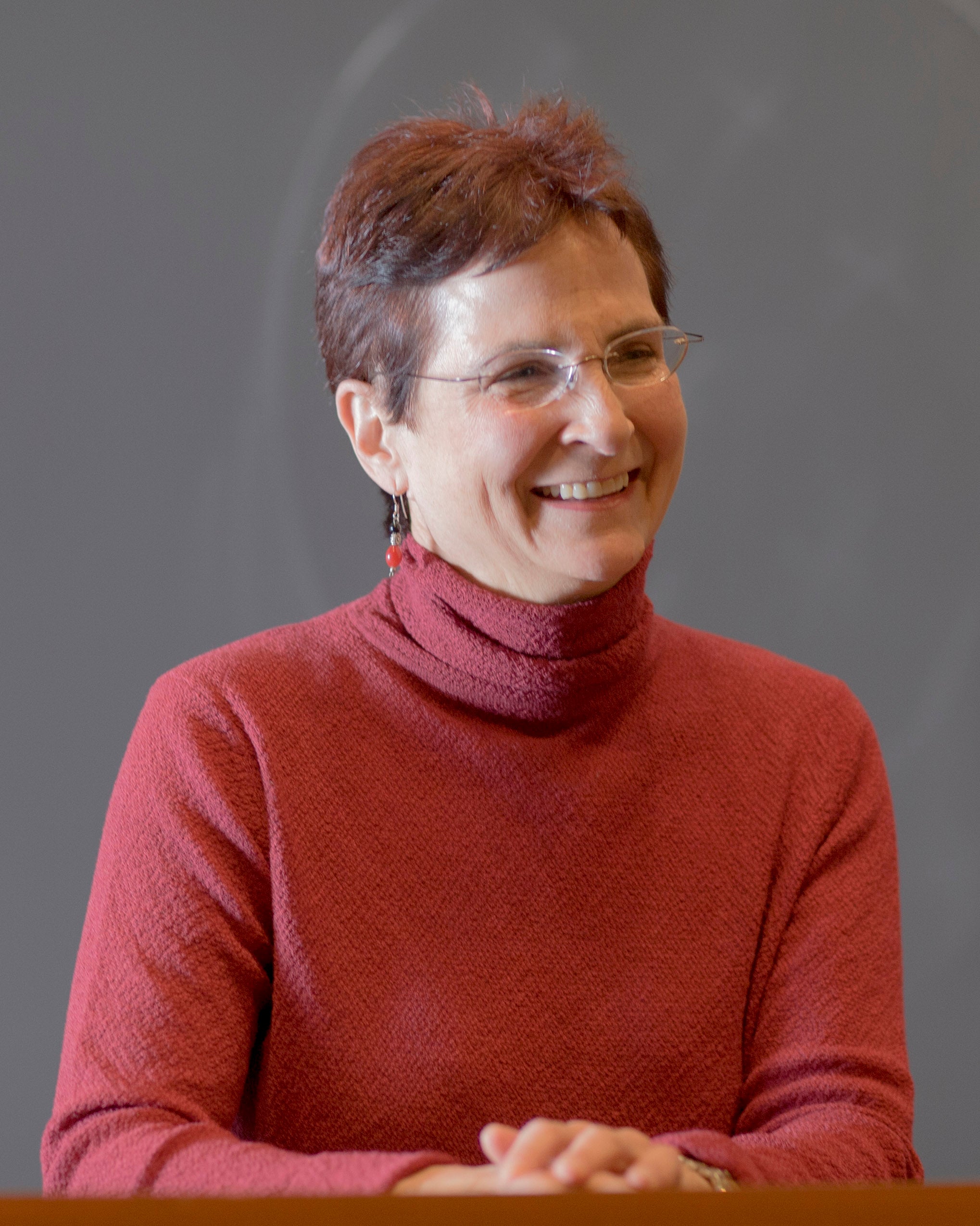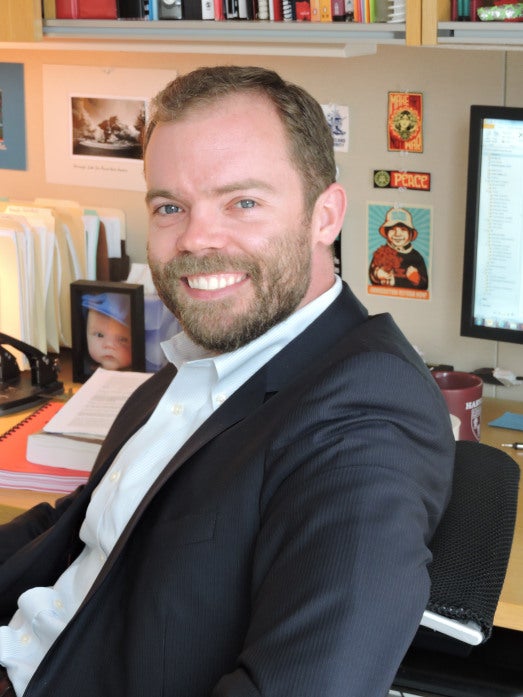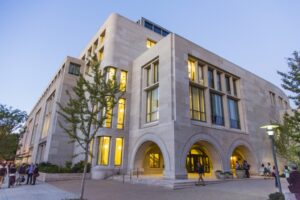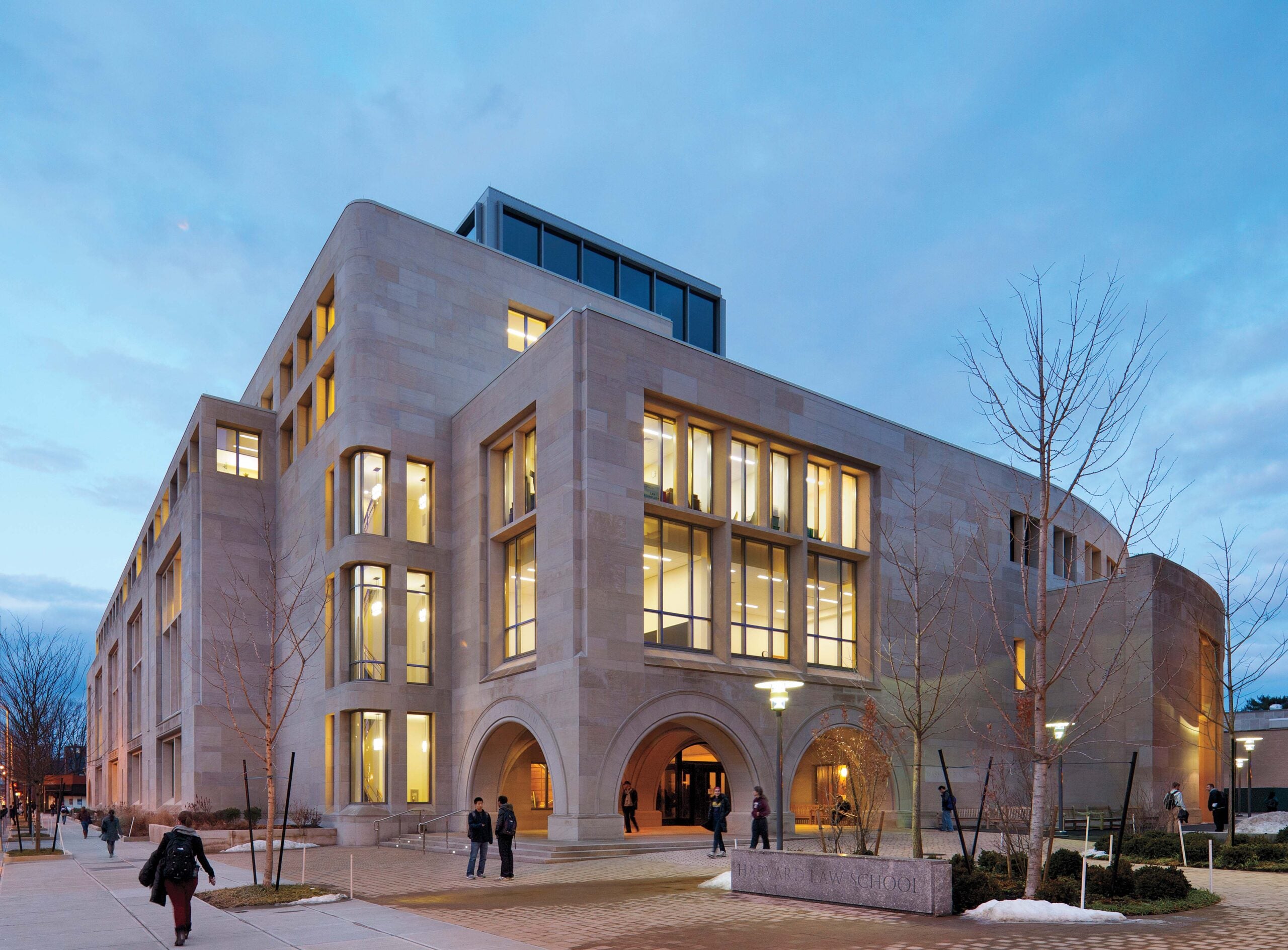People
Nancy Kelly
-
Years of advocacy by Harvard Law School’s Immigration and Refugee Clinical Program have culminated in a landmark decision recognizing gender as basis for asylum claims.
-
For the Clinical Program at Harvard Law School, the past weeks of the COVID-19 pandemic have been a time to mobilize. As the clinics have moved to working remotely, their work has continued with new urgency.
-
The founder and director of Harvard Immigration and Refugee Clinic Deborah Anker LL.M. ’84 received the Federal Bar Association’s NGO Lawyer of the Year Joint Award on May 18. She was honored alongside Karen Musalo, director of the Center for Gender and Refugee Studies at Hastings College of the Law.
-
Phil Torrey on ‘crimmigration’
June 22, 2018
‘Crimmigration’—the intersection of criminal and immigration law—is the newest policy area for the Harvard Immigration and Refugee Clinical Program (HIRC). In addition to its broader advocacy clinic, HIRC offers Phil Torrey’s crimmigration clinic in the spring: an opportunity for students to gain direct experience working on and contributing to case law in this young field.
-
“Crimmigration”
June 19, 2018
"It often happens," says Phil Torrey, managing attorney of the Harvard Immigration and Refugee Clinical Program (HIRC), “that I’ll get a phone call from criminal-defense counsel somewhere random in the country, like the one last week I got from Tennessee. The lawyer says, ‘Hey, I’m about to go into the courtroom, here’s the plea deal that’s on the table—and my client’s not a U.S. citizen. What’s gonna happen?’” Torrey is addressing the four law students in his “crimmigration” clinic, who are learning how to advocate for criminal defendants who are not American citizens...In addition to its broader Immigration and Refugee Advocacy clinic, HIRC offers Torrey’s crimmigration clinic in the spring: an opportunity for students to gain direct experience working on and contributing to case law in this young field. When she co-founded HIRC in 1984, says clinical professor of law Deborah Anker, it “was at the bottom of the pile”; immigration issues were barely recognized as a subfield of law. But student interest has spiked since the 2016 election, and now, she says, the Immigration and Refugee Advocacy clinic has one of “the longest waiting lists among [HLS] clinics—about 100 students.”...As Nancy Kelly, a clinical instructor and lecturer on law, puts it, Donald Trump “ran on a platform of immigrants being criminals, and now he’s doing his best to make that a reality.”... The clinic hired a staff attorney, Jason Corral, in January 2017 to represent members of the University community; soon after, a number of additional Trump administration executive orders affected various Harvard students and staff members: the ban on travel from seven majority-Muslim countries (HIRC wrote an amicus brief challenging that order), the repeal of DACA (now under challenge in courts), and the revocation of Temporary Protected Status (TPS) for 400,000 immigrants from El Salvador, Haiti, Nicaragua, Nepal, and, most recently, Honduras...If the repeal proceeds without challenge, Corral says, HIRC may consider building asylum arguments for TPS holders.
-
HIRC files amicus brief challenging U.S. Attorney General’s efforts to restrict gender asylum
May 1, 2018
The Harvard Immigration and Refugee Clinical Program joined the American Immigration Lawyers Association, Human Rights First and Kids in Need of Defense in filing a brief of amicus curiae in the case Matter of A-B-, a case that originated in immigration court but that is now before review of the U.S. Attorney General Jeff Sessions.
-
Law School Professors Sign Letter Opposing Sessions Nomination
January 6, 2017
Sixteen Harvard Law School faculty members have joined thousands of other law professors across the country in signing a letter opposing Republican U.S. Senator Jeff Sessions’s nomination as United States Attorney General... Law School professor Ronald S. Sullivan Jr., who signed the letter, said Sessions’s record on voting rights, especially for minorities, is deeply troubling to him. “The aim of the letter is to raise the significant issues about voting, which is fundamental to our democratic experiment and, once these issues are raised, we hope that the committee and the citizenry in general would not support this nominee,” Sullivan said. “We certainly think that, party affiliation aside, no Attorney General should have taken such a radical view about voting rights laws.”
-
Celebrating National Pro Bono Week at HLS
October 25, 2016
In late October Harvard Law School celebrated National Pro Bono Week with a number of events to honor the outstanding work of lawyers who volunteer their time to help people in their communities.
-
The high price of freedom
September 8, 2014
It was the luckiest of breaks, in a life long overdue for one. Manuel Ordonez-Quino sat in a detention center in El Paso, awaiting deportation to Guatemala. Swept up in the massive raid on a New Bedford factory in 2007, immigration officials said he had agreed to leave the country. But some of his fellow detainees told lawyers that was impossible. Ordonez-Quino was deaf, they said. An indigenous Maya, he spoke only Quiché, not English or Spanish. He could not have understood what was happening to him, let alone agreed to it. So John Willshire-Carrera and Nancy Kelly of Greater Boston Legal Services and the Harvard [Immigration and Refugee [Clinical] Program took on his case. That one stroke of good fortune will change not only Ordonez-Quino’s life, but many others.
-
‘Urgency of Climate Change’ to Debut as Legal Defense
August 28, 2014
In attempting to use the necessity defense, the lawyers are veering from tradition. America is home to a long history of acts of civil disobedience — acts that that can help draw attention to a cause or an injustice. But such protestors normally admit that they committed crimes. Retired federal judge and Harvard Law School lecturer Nancy Gertner defended anti-nuclear protesters charged with trespass during the 24 years that she worked as a lawyer. They copped to their crimes, which they felt were justified. The difference here, she says, is that attorneys defending the lobster boat blockaders will argue that the necessity of the situation means that no crime was committed. “The necessity defense is a defense that justifies a particular criminal act,” Gertner said. “You’re saying the harm created by the criminal act is outweighed by the harm to be avoided. It’s saying it isn’t a crime.”
-
HIRC plays key role in landmark decision recognizing domestic violence as grounds for asylum
August 27, 2014
The Board of Immigration Appeals (BIA) issued a ground-breaking decision yesterday that recognized domestic violence as a basis for asylum. The court’s decision…
-
Honduran man waits for asylum after 12-year fight
August 5, 2014
When he arrived at the Texas border, Celvyn Mejia Romero was a scared 10-year-old, with a machete scar and memories of a murdered uncle as reminders of why he'd embarked on a long, perilous journey from Honduras…"He explained the harm he had suffered but he couldn't really explain the underlying reasons," John Willshire-Carrera, co-managing director of the Harvard Immigration and Refugee Clinic at Greater Boston Legal Services, says of his client…"The process has become more responsive to children's needs ...," says Nancy Kelly, the Boston clinic's co-managing director. "On the other hand, a series of decisions have been made which seem to be making it harder for children who, in our opinion, are true refugees from getting relief because of the way gang-related harm is viewed."


